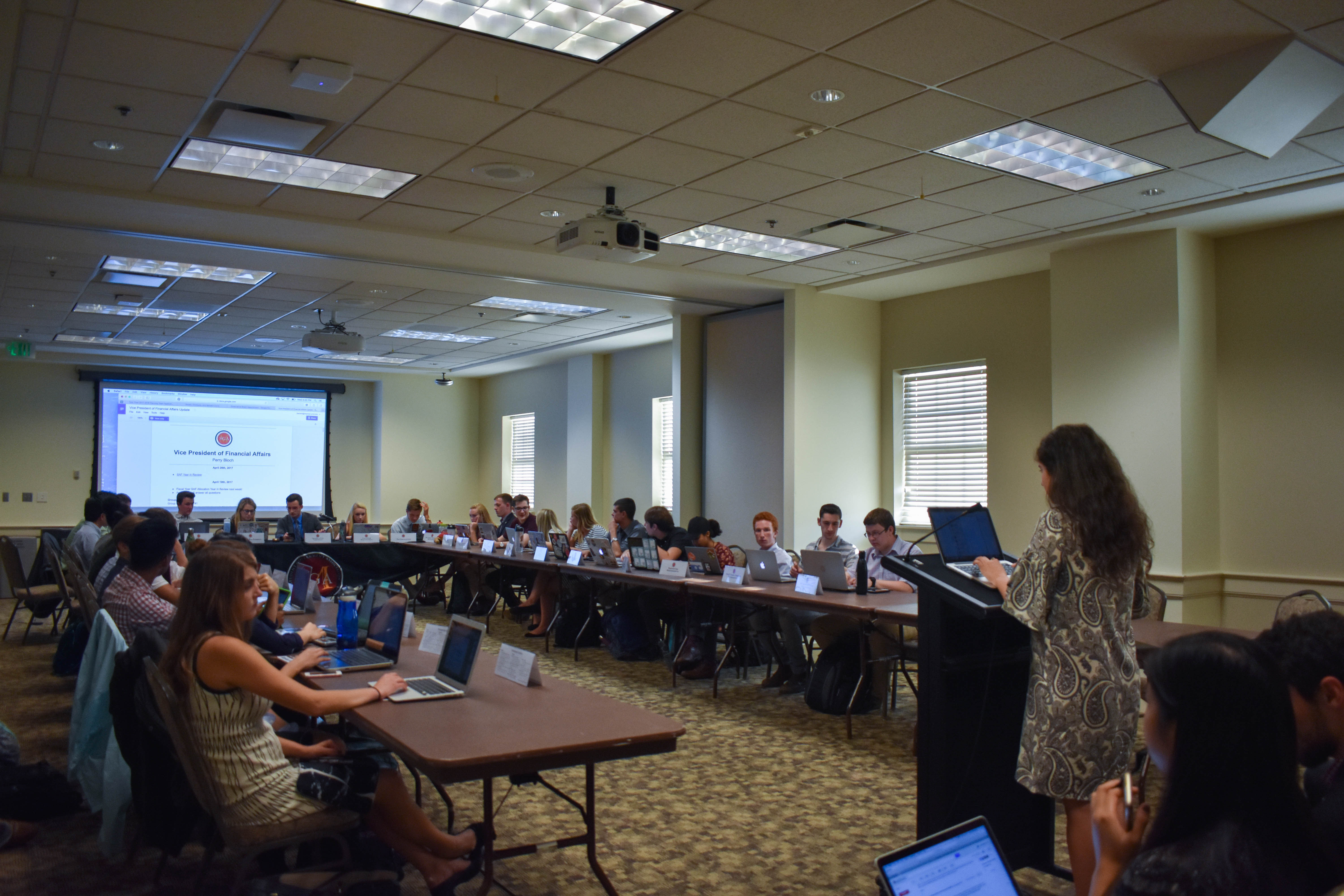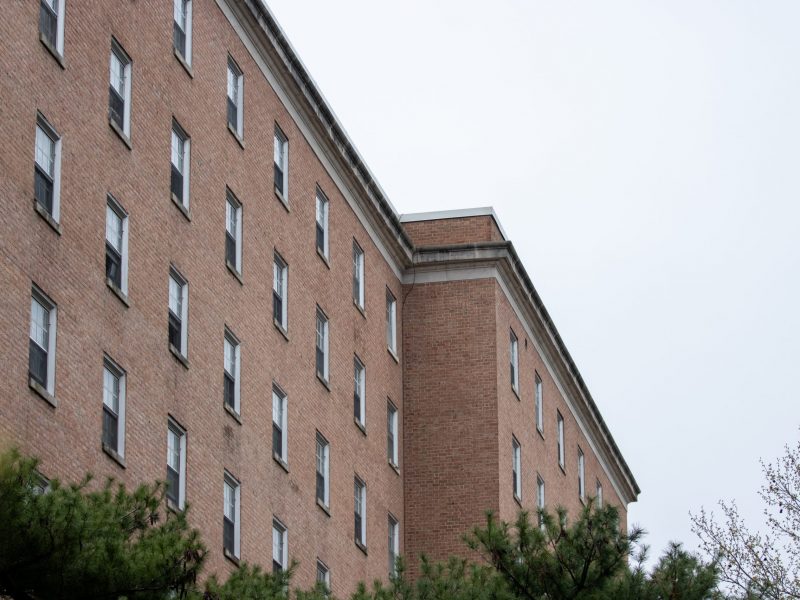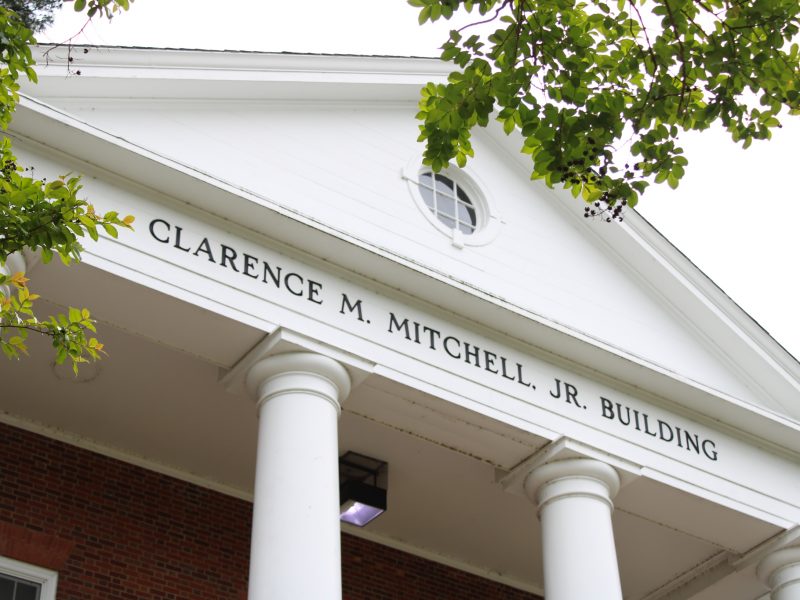The University of Maryland SGA passed a resolution Wednesday to support a U.S. Senate bill that would strengthen the guidelines universities are expected to follow when managing sexual assault complaints and investigation.
The Student Government Association’s vote, 36-0 with one abstention, is a reaffirmation of its support for the Campus Accountability and Safety Act, which was reintroduced to the Senate in April. A previous version of this resolution, though approved, expired at the end of the SGA’s spring legislative session.
The bill would mandate Title IX custodians to write a letter to both the accuser and the accused within 24 hours informing them of the decision to proceed with an investigation of a sexual misconduct complaint.
Nan Himmelsbach, co-director of the SGA’s sexual misconduct prevention committee, said this proposal would be particularly beneficial to students at this university.
[Read more: Betsy DeVos rescinds Obama-era guidelines for investigating campus sexual assault]
“These issues will come to whoever they’re supposed to be reported to, and they kind of just get sat on for a couple of days, a couple of weeks, maybe even months, before anyone actually takes action,” Himmelsbach said. “I think that deters students from even reporting issues in the first place because they don’t think things are going to be taken seriously.”
This university recommends that the Office of Civil Rights and Sexual Misconduct resolve sexual misconduct investigations within 60 business days. Investigations frequently take twice as long to complete, according to the second annual Student Sexual Misconduct Report.
Earlier this month, U.S. Education Secretary Betsy DeVos announced the rollback of Obama-era guidelines on how universities should approach sexual misconduct cases and issued temporary instructions, including a provision that allows universities to decide which standard of evidence to use in handling such cases.
DeVos and her supporters say the new guidance will strengthen due process for those accused of sexual assault, while critics worry it will discourage victims from reporting their cases.
Because DeVos recently issued these interim rules about universities’ sexual misconduct investigations, the SGA’s support on this bill is significant, Himmelsbach said.
“It’s important that we maintain appropriate protocol for sexual assault and sexual misconduct cases even if that’s not what the national policy says we should do currently,” said Himmelsbach, a senior environmental science and policy major.
Originally introduced to the Senate in February 2015, the bill would also increase funding of university Title IX offices through grants to enhance campus employees’ training and improve their ability to address sexual misconduct.
Preventing Sexual Assault, an organization that supports sexual assault victims on the campus, supports the SGA in advocating for legislation related to sexual misconduct prevention, PSA president Cristina Johnson said.
“We need more funding and better training,” said Johnson, a senior journalism major. “The Office of Civil Rights and Sexual Misconduct can’t do their job because they don’t have the funding, they don’t have backing from our administration.”
[Read more: ‘It’s Real’: A seven-part look at how sexual assault is handled at the University of Maryland]
This university’s Title IX Officer Catherine Carroll’s reporting line recently changed from university President Wallace Loh’s chief of staff to the school’s general counsel. SGA President AJ Pruitt said in a statement that Carroll categorized the move as a “demotion” during a Sept. 7 conversation.
In fall 2016, this university announced it would fund six new positions across the Office of Civil Rights and Sexual Misconduct and CARE to Stop Violence after the SGA proposed a $34 annual student fee to help fund the Title IX office.
Federal guidelines for Title IX investigations would be more effective if they were backed by federal funding, Pruitt said.
“One thing that makes bills like this a little bit better than just plain guidance is that Congress can and has the ability to award funding for things like that,” Pruitt said.
The Association of Big Ten Students voted in support of the bill, 13-0 with one abstention, at its Winter Conference. The SGA, having passed the resolution Wednesday, will join the ABTS in sending letters to congressional leaders to show that this is a bill that Big Ten schools support, said Mihir Khetarpal, SGA’s director of governmental affairs and a senior economics and government and politics major.



